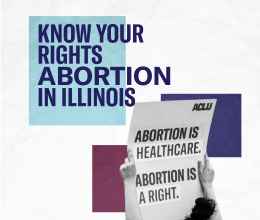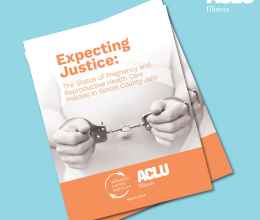ACLU, MergerWatch and National Health Law Program Say Walgreens and SSM Health Must Provide Assurances to Those Seeking Health Care Services
Washington - Walgreens must assure its customers seeking health care services that its in-store clinic provider, Catholic-sponsored SSM Health Medical Group, which adheres to religious directives, will not limit access to reproductive health services, information and referrals, say four public interest groups.
In letters to Walgreens’ chief medical officer and SSM Health’s regional president, the ACLU of Illinois, ACLU of Missouri, MergerWatch, and the National Health Law Program (NHeLP) ask for more information about the partnership between the companies and assurance that religious directives (or restrictions) will not override medical standard of care, curtail access to reproductive health care services, or allow for discrimination against LGBTQ persons.
The letters note that SSM Health (formerly known as the Sisters of the Sorrowful Mother) is a Catholic health care system that adheres to Ethical and Religious Directives (ERDs) issued and enforced by the U.S. Conference of Catholic Bishops. These directives expressly forbid contraceptive counseling and prescriptions, which are the kinds of primary care services women often seek at clinics, including those located within drug stores.
The Bishops’ Directives also forbid staff of Catholic-affiliated health care institutions to provide patients with information about or referrals for other types of reproductive health care, such as abortions, fertility treatments, vasectomies and tubal ligations. LGBTQ individuals and their families could also face discrimination at institutions following the ERDs, depending on interpretation of the Directives.
The groups ask Walgreens and SSM Health to explain how they will ensure that all “customers receive the reproductive health services, information, and referrals they have both come to expect from Walgreens, and that meet medical standards of care.” In addition the groups seek “assurances that all customers will be treated equally regardless of their gender, sexual orientation, gender identity, or gender expression.”
Both letters contain specific questions about whether the clinics, their staff and the care they give will be restricted by Catholic ethical directives: Will outpatient reproductive health services be available in all the in-store clinics? Will the medical information, counseling and referrals patients receive be limited because of religious directives? Will LGBTQ persons be treated with dignity at all clinics? Will counseling about HIV “safer sex” prevention practices be provided to at-risk patients? Will access to PrEP, a medication to prevent HIV infection, be available?





